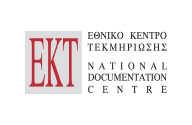Constructing gendered identities: the rhetorics of gender in the NGO’s volunteers’ talk about sex trafficking
Synopsis
This study examines the construction of gendered identities in Greek NGO volunteers’ discourse about sex trafficking, from the perspective of critical discursive social psychology and recent feminist post-structuralist theory. More specifically, the key analytical tools of the study’s methodology are the concepts of interpretative repertoires and ideological dilemmas (Potter and Wetherell, 1987, Wetherell, 1998, Billig, Condor, Edwards, Gene, Middleton, and Radley, 1988). The analysis highlights the link between the social construction of gender and sex trafficking. Gender is an object of negotiation in the volunteers’ discourse on sex trafficking and is related to specific ideological positions and dilemmas that emerge from the analysis.
The study consists of 32 semi structured interviews with volunteers working for NGOs in Greece. The NGOs were classified in four categories according to their profile. Those categories are:
- NGOs with a humanistic profile.
- NGOs with a religious profile.
- NGO’s with a medical profile.
- NGO’s with a feminist profile.
The survey’s data were collected between the months of June and December 2009. The interviews were conducted in the cities of Athens, Thessaloniki and Ioannina. Each interview lasted between one hour and one hour and a half. At this initial stage interviews were transcribed for content only. The data corpus adds up to approximately 800 A4 typewritten pages.
The analysis of this study is presented in chapter 7, 8 and 9. Chapter 7 examines sex trafficking as a criminal activity. Chapter 8 examines the “moral panic” that surrounds sex trafficking discourses. The final chapter (9), deals with the connection of sex trafficking to the “underdeveloped countries” and the ideological dilemmas that are related to it.



